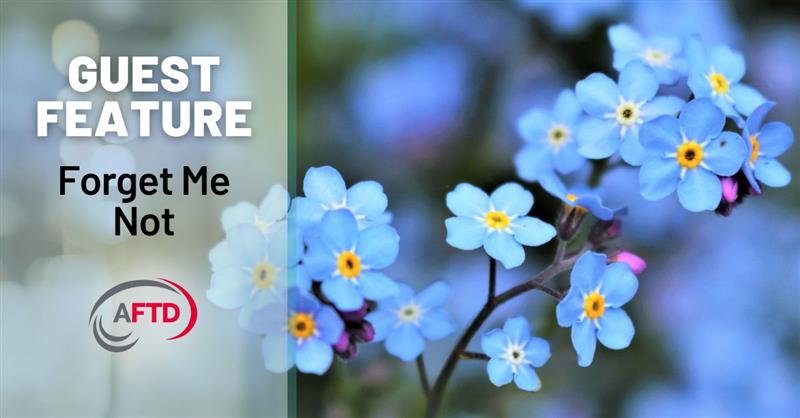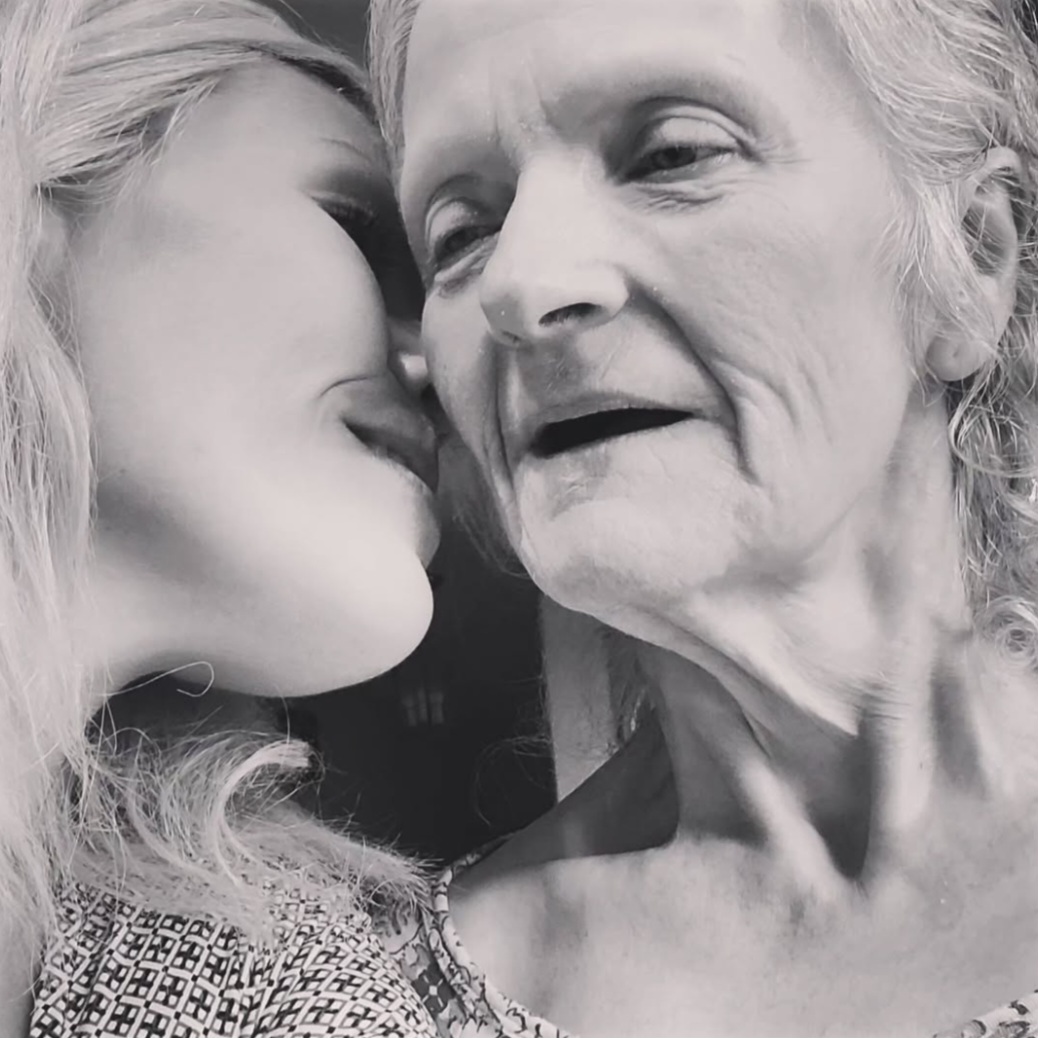Guest Feature: Forget Me Not

“Jessy, look what I planted for you. I know how much you love this flower.” I did. Forget me not. I was 8 or 9. Decades later, this flower will be tied to my fondest memories of you at your best.
My mother Michelle was like the flowers she planted: delicate, beautiful, humble, colorful. She shined her brightest when she was working in the yard or painting. Our bond was strong. I wanted her with me; she was the love of my life.As time passed, my mother displayed behaviors that make sense now, given her eventual FTD diagnosis, but at the time I thought she was just being her quirky self. Then, following an emergency hysterectomy, she experienced a steep cognitive decline.
My father watched his wife of 40 years slip away from everything he had ever known to be true love; he grew tired. He passed away, unexpectedly, in January 2022.
I had no time to mourn: my mother came to move in with me shortly after my father’s death. I felt like no one understood what I was going through, but I needed to be strong and move forward. By this point, Michelle could no longer properly express herself; she lost the ability to form sentences or words.
I was a rain cloud ready to burst. I remember lying in bed and feeling like giving up. What was I going to do? I would convince myself: “I can do this…I’m going to do it for Dad…this is what she deserves…” I knew my mother was counting on me. Praying aloud, I asked for God’s strength.
A few weeks in, her decline deepened. We were in and out of the hospital, and multiple misdiagnoses led to her being improperly medicated, causing further cognitive issues.

The author and her mother, Michelle Powers
I woke up at 5 a.m. one morning to find her awake with paint chips in her eyes, nose, and mouth. She had picked apart the headboard of the bed, from the wicker bed frame I’d purchased for her weeks prior. She always loved wicker.
But the saddest, most painful part of that moment was seeing she had ripped out all of the hair on her head. My mother lay there, amid scattered paint chips and hair, her eyes filled with pain and confusion.
I will never forget the darkness I felt seeing her like that. I was defeated, but somehow, I kept going.
I spent months pleading with her doctors to take her off her medication. When they finally did, she began suffering withdrawal symptoms. Afraid she would accidentally hurt herself, and with no better ideas, I took her to the University of Michigan.
Upon her arrival, six staff members had to restrain my 140-pound mother. She was immediately diagnosed with “drug-induced akathisia,” a side effect of the antipsychotics her previous doctors had prescribed.
The team at Michigan was incredible, and weaned my mother off her medications. In July 2022, just six months after my father’s passing, they diagnosed her with FTD, and said she had just one or two more years to live. I was devastated. Later, genetic testing revealed that my mother carries the C9orf72 mutation. I learned that my chances of having inherited the mutation were 50-50. There I was, 35 years old, having a full-fledged midlife crisis.
I stayed by my mother’s side through it all, bringing my laptop to the hospital so I could work remotely in her room. There is nothing like helping someone you love through very scary psychological changes: losing their voice, their speech, their ability to walk; unable to feed, bathe, and use the bathroom themselves; yet still feeling pain and crying.
Eventually, I made one of the most difficult choices of my life: I decided to place her in long-term care. I visit every day, and I know she knows I’m here, showing up for her.
These are isolating, lonely days for me, with time to reflect. I feel anger, resentment, grief; at times, I feel like I cannot go on. I sought support, but I couldn’t relate to anything I read, and no one I met knew quite what the FTD journey was like.
That’s when I discovered AFTD. Through their resources, I finally began to understand this disease. Their guidance helped me ask the right questions, find support, and feel less alone. AFTD gave me direction when I felt lost, and hope when I needed it most. That’s something I’ll always be grateful for.
My mother knows me. When she sees my face, she smiles, she cries, and I know that she loves me without her saying a word. Like the forget-me-not, we are both resilient, blooming again and again, after each season, my mom and me.
This journey has taught me that I am strong and will not be afraid. I’m using my light to keep her light alive. Mothers never stop teaching us: her silence teaches me patience, perspective, and empathy; it teaches me that when it rains, we will bloom again.
As for now, we will shed our petals together, Mother and Daughter. One day, I know I will bloom again—without her, but I will never forget-me-not.
Dedicated to my beautiful mother, Michelle Powers.
By Category
Our Newsletters
Stay Informed
Sign up now and stay on top of the latest with our newsletter, event alerts, and more…
